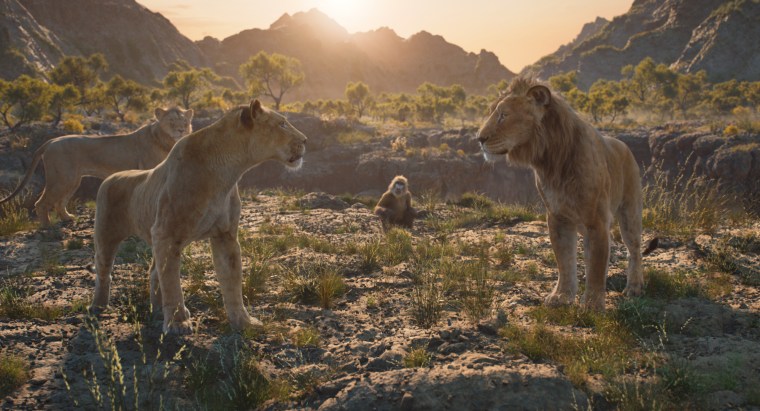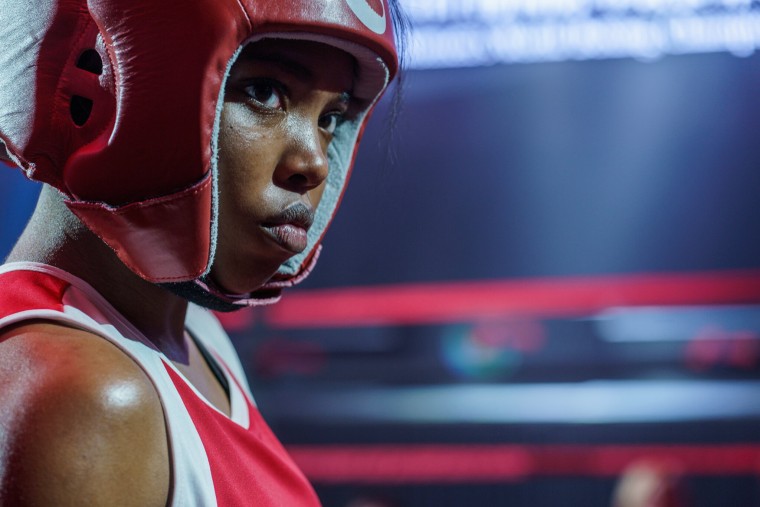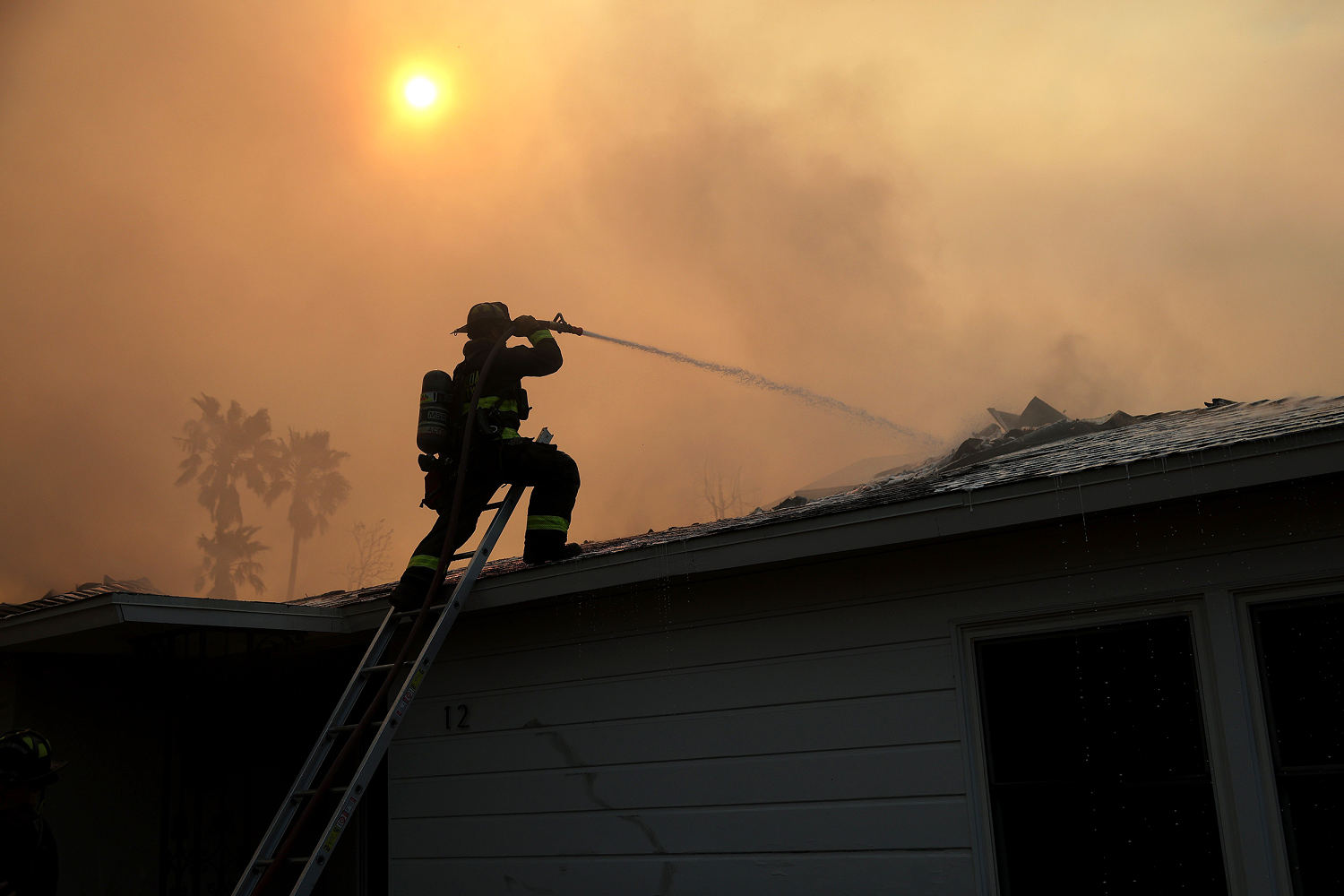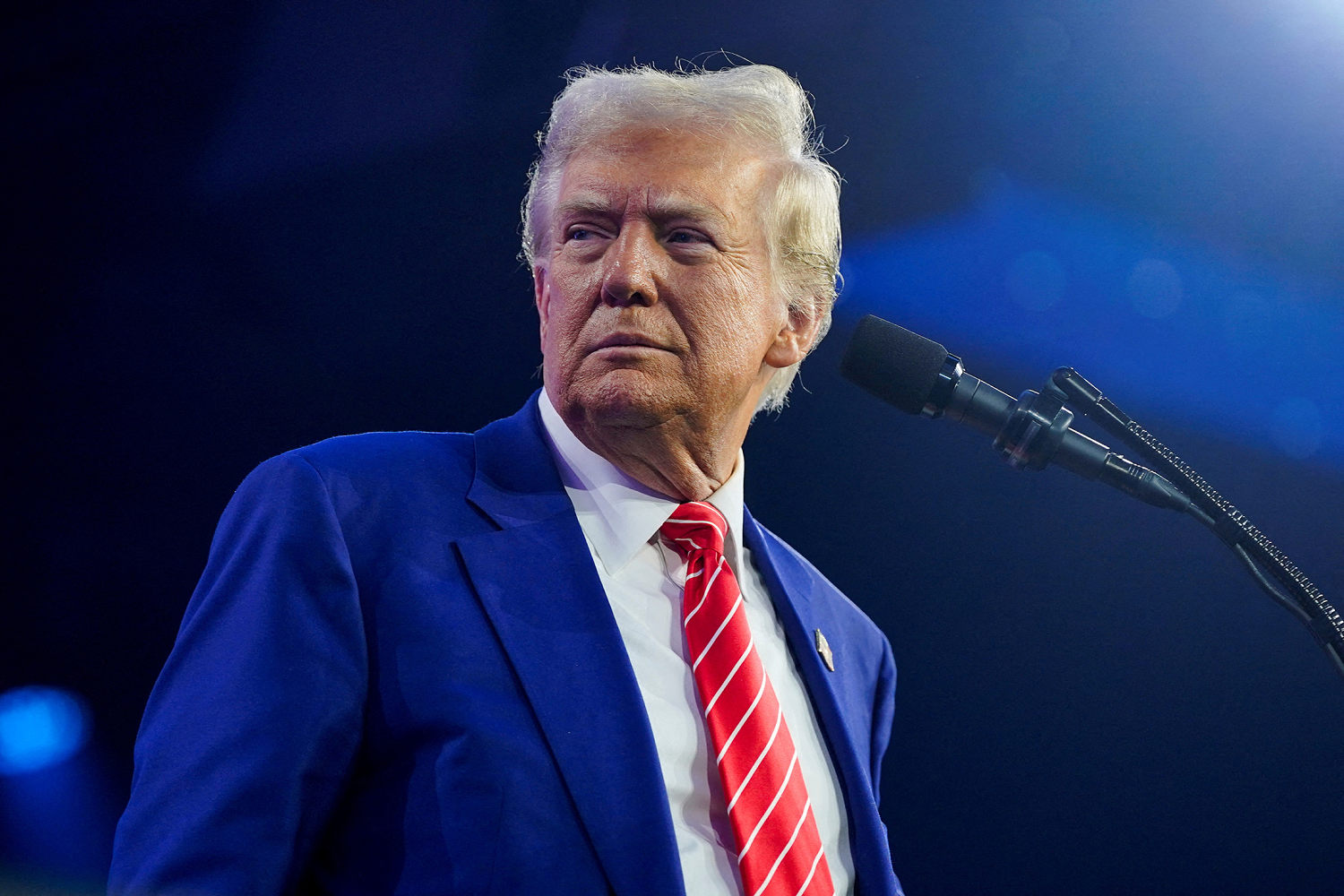Oscar winner Barry Jenkins kicked off the new year the way he ended the old, with two films — “Mufasa: The Lion King” and “The Fire Inside” — in the top 10 at the box office.
It’s a feat Jenkins — who co-wrote “The Fire Inside” with Rachel Morrison while editing his 2016 Oscar-winning film “Moonlight” — could never have planned. On the surface, the two films appear to have little in common.
“Mufasa,” the big-budget Disney release, has a huge cultural imprint thanks to 1994’s “The Lion King,” which became one of the most profitable films of all time with acting legend James Earl Jones voicing Mufasa. In contrast, “The Fire Inside,” a biopic about Claressa “T-Rex” Shields, the first American woman to earn a gold medal in boxing, is a decidedly smaller picture.
Jenkins told NBC News that the arc of the main character, “who has to go on this journey to self-actualize,” is what attracted him most to “The Fire Inside” in its early development stage. It’s a theme, he said, “I realize now is so present in my work.”
As Jenkins continues to grow as a filmmaker while also broadening the scope of the stories Hollywood tells and who is at their center, his themes explore the journey to oneself, as well as the values of community and “found family,” even in his global blockbuster.
What “grabbed” Jenkins about Mufasa was that the character was known in the original “Lion King” as “this great leader, this perfect father, the perfect king, and we assume that he is that way because of the character traits he inherited. I think decontextualizing that and showing that just like Claressa Shields, or just like the character in ‘Moonlight,’ that he came from this other place, and through learning from his community, through really wonderful nurturing by a woman who is essentially his foster mother.”
 A scene from "Mufasa."Disney
A scene from "Mufasa."DisneyThe story, Jenkins continued, also provided a thoughtful way to explore the complexities of good and evil. “So for many years, Mufasa was perfectly good, and Scar was perfectly evil,” he said. “I think in this story we get to show all these things happening to them, the choices they make. One character evolves to become the best version of himself, and the other character evolves to become the worst version of himself. It’s really a nuanced and complex way to look at good and evil. It’s a very 2024 way to look at good and evil versus the 1994 way.”
“The Fire Inside” breaks with a traditional narrative. Unlike other sports biopics and films, Jenkins said, “attaining the athletic goal was not the apex of Claressa’s journey.”
“I love that you’re in the film, 50 minutes in, and that’s done. And now we’re completing the actual journey, which is how does this young woman take full possession of herself, and what was the journey to achieve that,” he said. “And I saw that as something that was just universal among athletes from her background, and yet there was this wonderful [bonus] in pay equity among the boxers with women.”
While Jenkins is surprised by how timely the wider conversation around pay equity in women’s sports has become in the near-decade since “The Fire Inside” began its journey to the big screen, he notes that it shouldn’t be. “Unfortunately, so many of the themes in this film have always been relevant in a certain way,” he said.
 Ryan Destiny as the boxer Claressa Shields in “The Fire Inside.”Sabrina Lantos / Amazon / MGM
Ryan Destiny as the boxer Claressa Shields in “The Fire Inside.”Sabrina Lantos / Amazon / MGMSince “Moonlight,” Jenkins has continued to find those sweet spots while also taking on new challenges as a filmmaker. His adaptation of James Baldwin’s classic novel “If Beale Street Could Talk” propelled Regina King to an Oscar for best supporting actress in 2022. He took on Colson Whitehead’s Pulitzer Prize-winning novel “The Underground Railroad” for television, providing breakout roles for Thuso Mbedu (“The Woman King”) and Aaron Pierre.
Regardless of the ample resources a blockbuster may have or how much funding an independent film lacks, the key to making any movie, Jenkins said, “comes down to really understanding who the characters are, what they want, what they’re yearning for, and what they’re doing to accomplish those things.”
.png)
 2 hours ago
11
2 hours ago
11


































 Bengali (BD) ·
Bengali (BD) ·  English (US) ·
English (US) ·